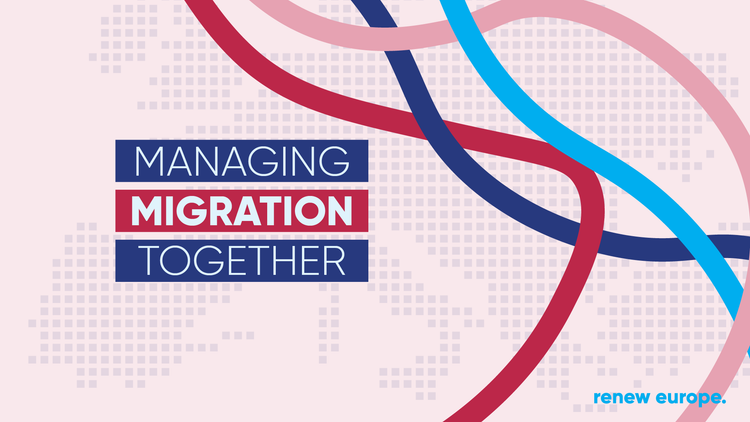
The European Parliament's Committee on Civil Liberties, Justice and Home Affairs today endorsed the breakthrough inter-institutional agreement reached last December with the Council on the Migration and Asylum Pact, as well as three other crucial building blocks of a common EU asylum and migration policy. With this green light, the EU is just one step away from finally delivering a migration reform based on responsibility and solidarity.
Fabienne Keller (L'Europe Ensemble, France), the European Parliament's rapporteur of the Asylum Procedures regulation and shadow rapporteur on the Asylum and Migration Management regulation, said:
“This is the demonstration of a strong Europe that delivers for EU citizens. Thanks to this Pact, we will ensure solidarity between the Member States, more efficient and fair procedures for the asylum seekers and better management of our external borders. We can be proud of this achievement.”
Malik Azmani (VVD, Netherlands), 1st Vice President of Renew Europe and the group's shadow rapporteur on the Crisis & Force Majeure Regulation, added:
“With the Crisis Regulation and Pact in place, we make sure that the EU is forward-looking and prepared, rather than taken by surprise by future migratory challenges. At last, we can put an end to the ad hoc solutions. For the EU to become a geopolitical player, managing migration properly is imperative. EU citizens expect us to deliver on this topic.”
Sophie in 't Veld (Netherlands), the European Parliament's rapporteur for the recast of the Reception Conditions Directive and Renew Europe's Coordinator in the Civil Liberties, Justice and Home Affairs (LIBE) Committee, said:
"The Reception Conditions Directive includes key guarantees for asylum seekers, such as access to quality reception conditions, education and the labour market. The safeguards for children can make a difference on the ground, in particular the right to have a representative for unaccompanied minors from day 1 and making detention of the children the exception. Overall however, this EU package is far from ideal. But after years of deadlock and violations of European law, this is an opportunity for a fresh start that we cannot dismiss. All now depends on implementation, which needs to be human-centred from the outset.
Jan-Christoph Oetjen (FDP, Germany), Renew Europe's shadow rapporteur on the Screening regulation and the Qualification Regulation, said:
"The new screening process will have to be completed within seven days, with no extensions. This guarantees that information is received quickly and that the humanitarian conditions for those arriving are improved."
Hilde Vautmans (Open Vld, Belgium), Renew Europe's shadow rapporteur on the Eurodac regulation, said:
“I welcome the key role that Eurodac will play in supporting the overall Asylum and Migration pact. On the initiative of Renew Europe, we have secured strong additional safeguards for children. I am particularly pleased that Eurodac will assist with the protection of child victims of human trafficking and the identification and protection of missing children, of which there are far too many.”
Abir Al-Sahlani (Centerpartiet, Sweden), Member of LIBE and Renew Europe's negotiator on the Resettlement Framework Regulation, said:
“With the Union Resettlement Framework Regulation finally in place, the EU will have an efficient tool to quickly respond to humanitarian crises around the world, resettling the most vulnerable persons and creating more legal pathways into our union."
The regulations:
Part of the Pact is the Asylum Procedure Regulation, which establishes a unified procedure for member states to follow when individuals seek international protection, and the Asylum and Migration Management Regulation, which replaces the Dublin framework and the revision of the Eurodac regulation, the EU fingerprint database. It also includes the Screening regulation, seeking to reinforce controls at external borders and ensuring swift identification of the appropriate procedure as well as the crises regulation, which establishes a framework to allow Member States to adjust certain rules in times of migration crises.
The three other common EU asylum policies endorsed were the Reception Conditions Directive, which aims to ensure high common EU reception standards for refugees, the Resettlement Framework Regulation, which seeks to provide safe and legal pathways to international protection and finally the Qualification Regulation, which puts forward common definitions for who qualifies for asylum in the whole EU.